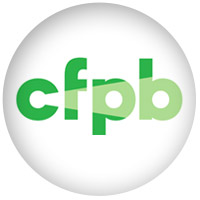
The United States Consumer Financial Protection Bureau has come under increasing fire from Republican lawmakers who now have the Trump administration to back their efforts.
Long-time critic Rep. Jeb Hensarling, R-Texas, who chairs the U.S. House of Representatives Financial Services Committee, compared the bureau to a tyranny in a recent interview with The Dallas Morning News.
Hensarling reportedly is preparing a new version of the Financial Choice Act — the Republican-led effort to repeal and replace the 2010 Dodd-Frank Act — that would include CFPB reforms.
Among other things, Choice Act 2.0 reportedly will seek to restructure the CFPB as a civil law enforcement agency with additional restrictions on its authority.
Sen. Ted Cruz and Rep. John Ratcliffe, also of Texas, last week introduced legislation S. 370 and H.R. 1031 to reverse what they consider unaccountable overreach at the CFPB.
In addition, U.S. Sen. David Perdue, R-Georgia, along with several Republican cosponsors, last week introduced the Consumer Financial Bureau Accountability Act, which aims to limit the bureau’s power.
Consumer Protection or Business Burden?
The CFPB has come down hard on businesses for defrauding consumers, including in the Wells Fargo scandal. In that case, the bank’s employees fraudulently opened more than 2 million accounts for customers and then tried to force victims into arbitration.
The bureau last spring proposed a new oversight rule prohibiting mandatory arbitration clauses.
A coalition of consumer protection and other groups later last year wrote the House Financial Services Committee to oppose Choice Act amendments that would impact the CFPB.
Those amendments included the dismantling of needed consumer protections, the Center for Responsible Lending said earlier this month.
Further, President Trump’s executive order on revising Dodd-Frank might lead to a repeat of the 2008 economic crisis, the CRL cautioned.
“The CFPB — as was demonstrated with the Wells Fargo scandal — is an important guardian for consumers against the worst abuses by business,” John Simpson, the privacy policy director at Consumer Watchdog, told CRM Buyer.
On the other hand, the CFPB “is perceived by many — small businesses, especially — as inappropriate overreach by the federal government into the affairs of business,” said Michael Jude, a program manager at Stratecast/Frost & Sullivan.
“Anything that reduces the burden on small banks will free up capital and provide relief to small employers, increasing jobs and providing new services and products to customers,” he told CRM Buyer.
Under the Gun
Bureau opponents object to what they claim is an autocratic structure. The director, currently Robert Cordray, is appointed by the president and can be dismissed only for cause.
Cordray, who initiates proceedings against targets before a CFPB-appointed administrative law judge, also hears appeals arising from the proceedings and can overturn the judge’s rulings.
An appellate court last year ruled that the CFPB was “unconstitutionally structured because it is an independent agency headed by a single director.” It voided the director’s for-cause employment clause, but it rejected calls to dismantle the bureau.
“It appears that this agency is uniquely powerful and lacks the normal separation of duties and limitations of power other agencies work under,” said Rob Enderle, principal analyst at the Enderle Group.
The agency’s duties and funding “should be folded into law enforcement again to ensure due process and eliminate the lack of separation of duties that has put its existence at risk,” he told CRM Buyer. This “should be done with built-in assurances and an auditable process.”























































